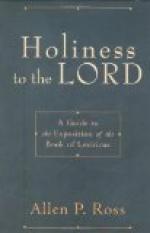We must realize that all our knowledge and information and the entire structure of science are ultimately derived from the perceptions of our senses and thereby limited in the same manner and to the same extent as our sense perceptions and our intellect are limited. The success or failure of scientific achievement largely depends on the extent to which we can abstract—that is, make our observations and conclusions independent of the limitations of the human mind. But there are limitations inherent in the human mind beyond which our intellect cannot reach, and therefore science does not and cannot show us the world as it actually is, with its true facts and laws, but only as it appears to us within the inherent limitations of the human mind.
The greatest limitation of the human mind is that all its perceptions are finite, and our intellect cannot grasp the conception of infinity. The same limitation therefore applies to the world as it appears to our reasoning intellect, and in the world of science there is no infinity, and conceptions such as God and the immortality of the ego are beyond the realm of empirical science. Science deals only with finite events in finite time and space, and the farther we pass onward in space or time, the more uncertain becomes the scientific reasoning, until, in trying to approach the infinite, we are lost in the fog of unreasonable contradiction, “beyond science”—that is, “transcendental”.
Thus, we may never know and understand the infinite, whether in nature, in the ultimate deductions from the laws of nature in time and in space, or beyond nature, on such transcendental conceptions as God and immortality. But we may approach these subjects as far as the limitations of our mind permit, reach the border line beyond which we cannot go, and so derive some understanding of how far these subjects may appear nonexisting or unreasonable, merely because they are beyond the limitations of our intellect.
There appear to me two promising directions of approach—first, from the complex of thought and research, which in physics has culminated in the theory of relativity; and, second, in a study of the gaps found in the structure of empirical science and what they may teach us.
All events of nature occur in space and in time. Whatever we perceive, whatever record we receive through our senses, always is attached to, and contained in, space and time. But are space and time real existing things? Have they an absolute reality outside of our mind, as a part or framework of nature, as entities—that is, things that are? Or are they merely a conception of the human mind, a form given by the character of our mind to the events of nature—that is, to the hypothetical cause of our sense perceptions? Kant, the greatest and most critical of all philosophers, in his Critique of Pure Reason (Kritik der Reinen Vernunft), concludes that space and time have no absolute existence, but




